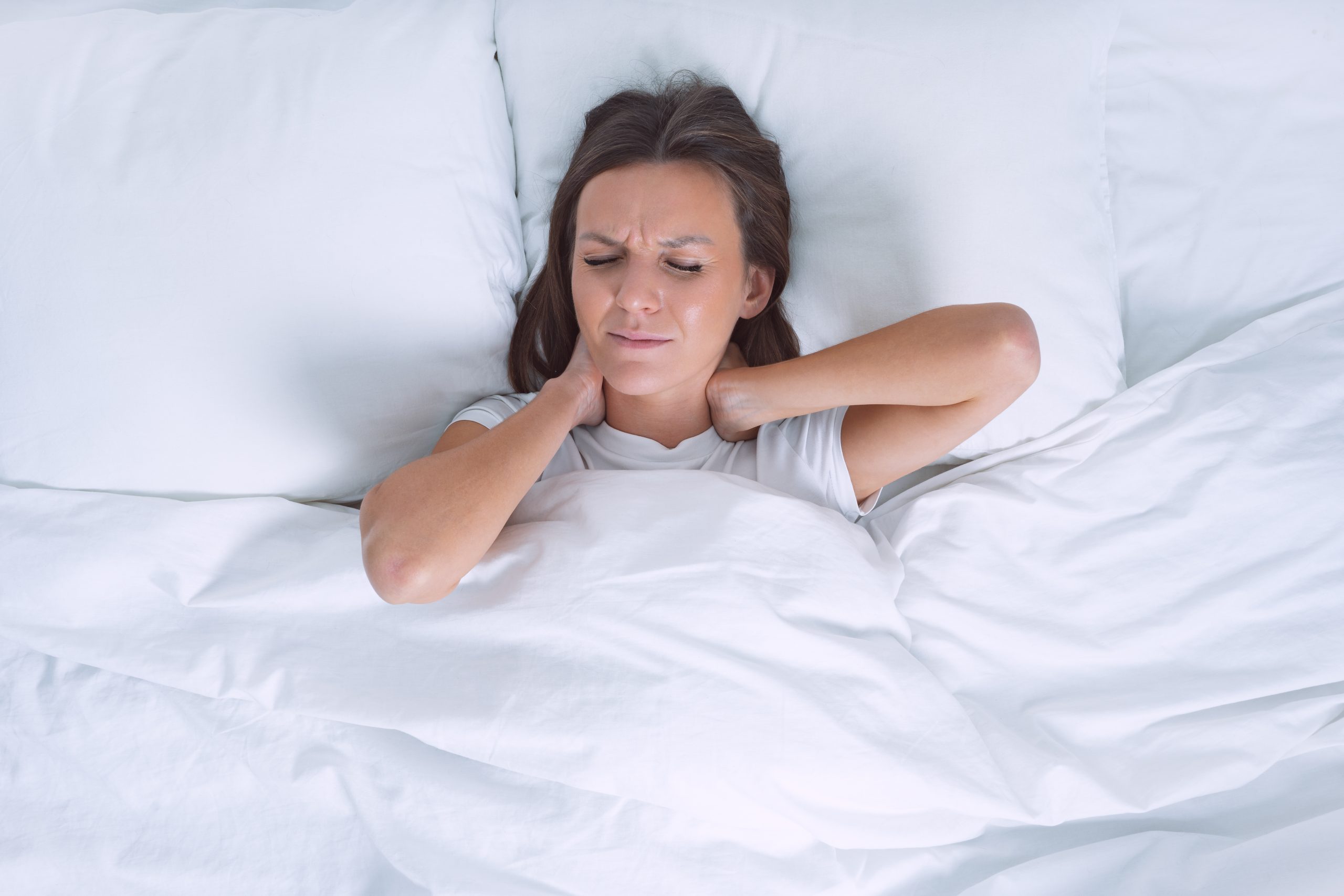21 Aug Understanding the Connection Between the Vagus Nerve and Sleep

At TMJ and Sleep Solutions of Alabama, we know there are various reasons why you might not be getting enough sleep. Our specialty is unraveling the mystery (of why you don’t feel well-rested when waking up in the morning) and treating it. In some cases, the vagus nerve may play a role in disrupting your rest.
Keep reading to learn more about the connection between the vagus nerve and sleep and how it may contribute to your health.
The Vagus Nerve and Sleep
The vagus nerve extends from the brainstem to different organs in the body, such as the heart, lungs, and gastrointestinal tract. It is central to the parasympathetic nervous system and has many responsibilities that facilitate critical involuntary bodily functions like respiration, digestion, and heart rate regulation; it’s also crucial for regulating functions necessary for relaxation and restful sleep.
A healthy, well-functioning vagus nerve reduces stress in multiple ways, primarily by lowering levels of the “stress hormone,” cortisol, and improving heart rate. In contrast, a low-functioning vagus nerve can lead to increased cortisol levels, which disrupt healthy sleep patterns and contribute to insomnia, sleep apnea, and other sleep disorders. Lack of sleep can also result in memory loss, poor concentration, and higher stroke risk.
If you’re experiencing these symptoms, your vagus nerve might function at low capacity. Don’t worry, here’s how you can stimulate your vagus nerve for better sleep:
External Vagus Nerve Stimulation
The vagus nerve can be manually stimulated in different ways to promote improved function for less stress, better sleep, and pain relief. Try an external vagus nerve stimulation device; we recommend this one (and no, we’re not sponsored). These innovative devices produce great results for many of our patients.
Breathing Exercises
Diaphragmatic breaths are the most common vagus nerve regulation method you can practice at home without devices or equipment. The 4-7-8 approach involves four seconds of inhalation, holding your breath for seven seconds, and eight seconds of exhalation.
Using this method slows down an elevated heart rate, which promotes relaxation and aids in the calmness necessary for restful sleep.
Cold Exposure
Splashing cold water on your face or taking a cold shower activates the vagus nerve and signals the body to relax. Use the last 10 seconds of your morning shower for cold exposure to promote a calmer, balanced day.
Humming
Humming stimulates the vagus nerve through the sound waves produced when air passes from your lungs through the vocal cords. Doing this before bed promotes relaxation and prepares your body for sleep.
When to Consult a Doctor
For the best results, designate 10 minutes daily to do these exercises. See if you notice a difference in your sleep quality over time. Incorporating these activities into your routine could aid in sleep relief; however, it is worth mentioning that vagus nerve disruption can be a symptom of an underlying health condition.
The vagus nerve is linked to numerous essential bodily functions, so if you experience persistent symptoms (even after trying the exercises above), please discuss them with your doctor. Sleep apnea, a condition with many risks, can also affect the vagus nerve and sleep quality.
Think your symptoms might be related to sleep apnea? Take our quick quiz to find out if that’s what could be affecting your rest.
Better Sleep is Within Your Reach
Our specialty at TMJ and Sleep Solutions is finding custom sleep solutions for individuals struggling with sleep discomfort or potential sleep disorders. If you’re experiencing stress and anxiety, chronic fatigue, or restless nights, try out our recommended exercises and keep track of the changes you notice.
If your problems persist or worsen, contact our staff by clicking the button below. Our renowned expert in dental sleep medicine, Dr. Hartsfield, can deliver the effective, individualized treatment you’re searching for.
